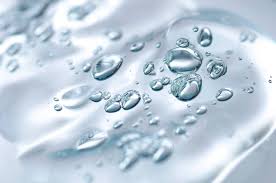Hyaluronic Acid (HA) is one of the most loved ingredients in skincare—famed for delivering deep hydration, plumpness, and a dewy glow. You’ll find it everywhere: serums, moisturizers, masks, and even injectables.
But for Muslim consumers, an important question arises:
👉 Is hyaluronic acid halal?
The answer depends on how it’s made. Let’s uncover the science and the sources.
What Is Hyaluronic Acid?
Hyaluronic Acid is a sugar molecule (polysaccharide) that naturally occurs in the skin, eyes, and joints. Its superpower: it can bind up to 1,000 times its weight in water, making it one of the most effective humectants for hydration.
In skincare, it:
-
Plumps fine lines
-
Restores skin elasticity
-
Strengthens the barrier
-
Keeps skin hydrated and smooth
How Hyaluronic Acid Is Made
Hyaluronic Acid in beauty products can come from two main sources:
-
Animal-Derived Hyaluronic Acid
-
Traditionally extracted from rooster combs (the red crown on a rooster’s head).
-
Halal status: ❌ Not permissible unless sourced from halal-slaughtered animals, which is rare in cosmetics.
-
-
Biotech / Fermentation-Derived Hyaluronic Acid
-
The modern gold standard.
-
Produced through fermenting plant sugars with bacteria or yeast in controlled labs.
-
Vegan, sustainable, and halal-friendly when processed without contamination.
-
Most premium skincare today uses this method.
-
Why Source Matters
-
Animal-derived HA risks being haram due to non-halal animal processing.
-
Fermentation-derived HA is both halal and vegan, making it the safest and most ethical choice.
-
For injectables (like fillers), checking certification is even more critical, as some medical-grade HA may still use animal sources.
At Purelab Care, we use fermentation-derived Hyaluronic Acid, verified by third-party halal certification—ensuring safety, compliance, and luxury performance.
✅ Hyaluronic Acid & Halal: Frequently Asked Questions
1. Is all hyaluronic acid halal?
No. Only fermentation-derived or halal-certified animal-derived HA is permissible. Rooster-comb HA without halal processing is haram.
2. Is hyaluronic acid vegan?
Yes, when derived through fermentation. No, when sourced from animals.
3. Does hyaluronic acid have side effects?
Topical HA is safe and well tolerated. Injectable HA should always be done by licensed professionals.
4. How can I tell if HA in my skincare is halal?
Check product claims, certification, or ask the brand directly. At Purelab Care, every ingredient is halal-verified.
5. Does Purelab Care use halal HA?
Yes—always fermentation-derived, halal-certified, and cruelty-free.
The Bottom Line
Hyaluronic Acid is a powerhouse for hydration and skin health—but not all sources are created equal.
-
❌ Animal-derived HA = potentially haram.
-
✅ Fermentation-derived HA = halal, vegan, and safe.
At Purelab Care, we choose only halal-certified, fermentation-based Hyaluronic Acid to ensure your skin gets the best hydration with complete peace of mind.



